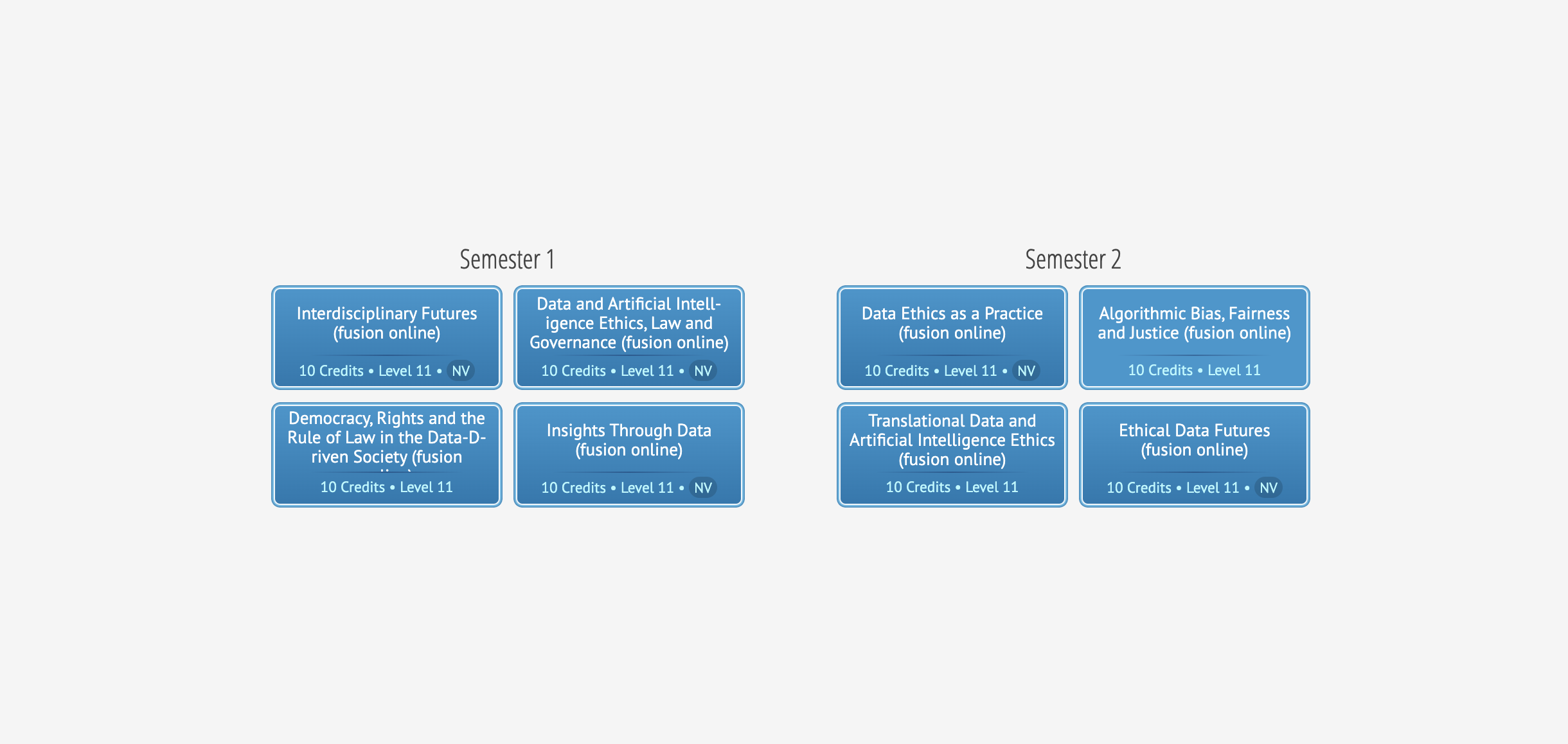
This MSc program has a mix of mandatory courses and electives. There are two mandatory courses in Semester 1: Interdisciplinary Futures and Data and Artificial Intelligence Ethics, Law and Governance. Interdisciplinary Futures, taught by Dr Linda O’Keeffe, is something every cohort takes and is meant to help students develop the critical and creative skills necessary to becoming interdisciplinary thinkers. Artificial Intelligence Ethics, Law and Governance, taught by Dr John Zerilli, is a course designed to help students grasp the relationship between ethics, law, and policy in the context of AI and other data-intensive technologies.
Then we get into the electives, and that’s the hard part. Electives in the MSc program at Edinburgh are a ‘kid in a candy store’ kind of thing. They’re all alluring, to be certain. Only the candy represents the future of humanity, so our choices seem to matter a lot more. For example, there is a course on Circular Economy, which looks at the entire lifecycle of a product and maximizes its value and required resources. It’s a flipped classroom delivery method where student groups collaborate to review the current business model of their chosen organization to identify alternative practices that eliminate waste and pollution, promote the continual use of resources, and reduce environmental impact.
Personally, I was torn. There are so many great courses to choose from, and while there were some courses I really wanted to take, such as Ethics of Robotics and Autonomous Systems, I ultimately landed on these eight over the two semesters. The forcing function I used to decide which courses to take wasn’t based on which sounded most interesting but which I thought best represented my future self. Coders have this great credo, “Be kind to your future self,” which is a reminder to annotate and explain the myriad decisions you make along the way. That way, when they go back and review their code months later, they can remember why they made certain decisions. In my case, my future self is the data ethicist as a practitioner, not a theorist. Therefore, I chose courses I thought would help me learn how to build healthy and human-beneficial futures practically.
